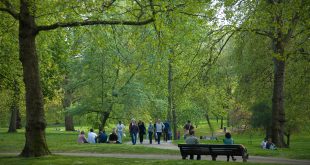By Mihika Badjate
As the first semester of school draws to an end, the dark clouds of finals week starts to loom over our heads. If you are one of the one in a million students who has already started studying, kudos to you. If, like me, you think you should start studying during Thanksgiving Break, but know in the back of your mind that you won’t get around to it until the last possible minute, you might want to brainstorm some ideas to use your study time the most effectively. Everyone has their own tried and tested methods, but here are a few that have really worked for me.
Making Charts/Organized Notes
When there’s a lot of information to review, making charts and organizing your notes can help to get everything straight. For example, I took biology in 8th grade, and there was one particular test on microorganisms that contained a lot of different facts and names. I decided to make a chart of all the categories of organisms, their subcategories, examples, traits, and anything else we learned about them. The process of writing down the information really cemented it in my brain, and I found that I was completely prepared for the test.
Flashcards
Useful for anything from vocabulary to simply re-learning your times tables, flashcards are another wonderful study technique. As with note taking, writing really helps you learn the information, so you may find that once you have made the flashcards, you don’t actually have to use them that much. They can also be a great tool for studying with your friends, so you can quiz each other to make sure that you know the material. I like to use the program Quizlet to make electronic flashcards for French vocabulary so that I can practice the spelling and test myself until I know them by heart.
Writing and Answering Your Own Questions
Although this might seem like a rather lengthy way of studying for a test, there are certain subjects for which it can be really helpful, especially for essay questions. In my AP World History class, we have no idea what the essay question on the test will be on until we see it, so I like to think up possible prompts and write brief outlines for them. This also really helps on the multiple choice, because it forces you to go over your notes and the textbook to write the questions.
Lots of Practice Problems
Lastly, it always helps to do lots of practice problems. Especially for subjects involving Math, for which you can’t always make flashcards or charts, completing worksheets and checking your answers is the best way that you can study. By doing problems from each chapter, you can figure out what you need the most work on, and what questions you have for your teacher before the final.
 Tempus Magazine By Students, For Students
Tempus Magazine By Students, For Students 



